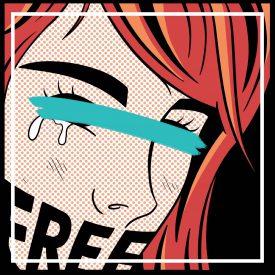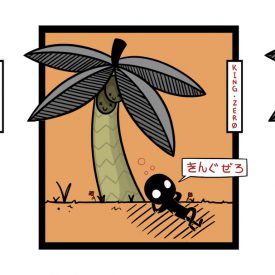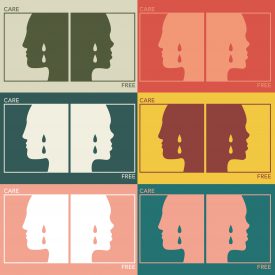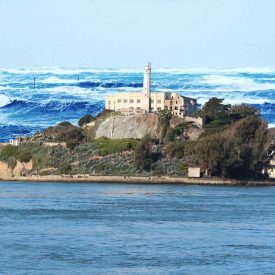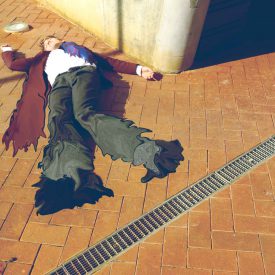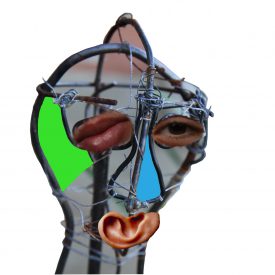Homecoming
Sam Joyner, Year 11
James is coming home. He’ll be here any minute. Mummy says I haven’t seen him since I was three. I don’t remember that. But I’m five today. And James is almost twenty-four. Other kids at my day-care think it’s weird when I tell them that my brother is a grownup. I don’t have any other brothers or sisters so I don’t know if it’s weird. Mummy didn’t have any other children after James because James’ dad was accidentally killed in a protest rally. I don’t know what a protest rally is, but it sounds scary if people can die there. James was younger than me when his dad died, but mummy says he moved out when he was a teenager because the house reminded him of his dad. She says he was just going through a phase. Now he has his own apartment in Orlando. I don’t know where Orlando is, but Daddy says it’s in Florida. I don’t know where Florida is either. Maybe it’s on the other side of Australia. Daddy would know. He’s very smart. Daddy also says that turning five is an important day and that’s why James is coming back. I think that’s nice of James.
The doorbell rings as Mummy finishes putting out the plates and knives and forks and food for dinner and a man walks in.
“Hello, James,” Mummy says. She doesn’t seem very happy. Maybe she is still upset that James has moved out. But shouldn’t she be happy that he’s here?
James looks kind, but upset. Maybe he is upset that he’s back in his dad’s house and he’s reminded of him.
He nods at Mummy and says, “Hello, May.” That’s Mummy’s first name. James is a grownup so it makes sense that he would call another grownup by their first name, but I don’t think I’d ever call Mummy by her first name. It feels wrong.
Daddy walks up and shakes James’ hand. “James,” he says.
“Bill,” James says back. That’s Daddy’s first name but Dad isn’t James’ dad so it makes sense that he doesn’t call him Dad. It would be weird if I called James’ dad Dad. Even though he’s dead. I guess I’ll never have to call him anything.
James looks at me and says, “Happy birthday, Jess. You’re getting big now.” He smiles for the first time since he arrived and hugs me. I don’t know what to do, so I hug him back. I don’t know how I feel about James. He seems nice, but Mommy doesn’t seem to like him.
“Thanks, James,” I say back. I try to make conversation because Mummy and Daddy haven’t said anything else, “Mummy says I haven’t seen you since I was three.”
“What?” he replies. He seems distracted. “Oh. Yes. Well, it just gets difficult to come back sometimes, what with work and all.”
“What’s your job?” I ask him, trying to keep the conversation going. Mummy has never told me what James does, and she doesn’t seem happy that I’ve asked James now.
“Oh, uh, I work in the lobbying industry, trying to get state senators and various businessmen and women to support…” he looks at Mummy and pauses, “…equality throughout Florida, and to hopefully pass legislature through Congress that will allow…” He looks at Mummy again and then sighs. “I try to make the world a better place,” he finishes.
“That sounds good,” I say back.
Mummy looks upset, like she wants to yell at him, but she stays silent for a few seconds before she asks him, “And what’s the situation with you? Are you still…” she stops and looks at me. People seem to like doing that today. Maybe it’s because it’s my birthday. But then Mummy smiles sadly at me. Maybe it isn’t because it’s my birthday. She only smiles at me sadly when something is wrong. She looks back at James. “Are you still experiencing a certain genetic predisposition?” she asks him. I frown, trying to figure out what those words mean and what she’s asking my brother.
James sighs and tries to smile, “I’m getting married in a few weeks.”
Nobody says anything for a minute. Mummy seems frozen and Daddy is looking back and forth between James and Mummy. Suddenly Mummy starts happy-crying, smiles, hugs James and says, “Oh James! I’m so happy for you! What’s her name?” but Dad only frowns. James doesn’t say anything and Mummy’s smile fades. “James? What’s her name?”
James still doesn’t say anything. James doesn’t seem very happy that he’s getting married, which doesn’t make sense. Mummy and Daddy always told me that a man and woman getting married is the best thing that can happen to them, apart from having children like me.
Dad then says, “What’s his name?” I frown again. I always thought that marriage was a thing only between men and women. But I’m always learning new things.
Mummy stops crying and hugging James and steps away from him. James looks at Dad and says, “Robert.”
Mummy seems upset. Is it because James is marrying a man? That doesn’t seem fair. But Mummy is much smarter than me. She would know if it is right or wrong to marry another man.
Mummy looks very angry now. I haven’t seen her this angry before. “Get out of my house,” she says. Dad looks nervous. Maybe he hasn’t seen her this angry before either.
I realise that if James leaves he can’t give me my present. “But James hasn’t given me my – ”
Mummy stares at me before I can finish and I stop talking. James looks at me and Dad, smiles, and then walks out the still open door before he even sees the food on the table.
Mummy slams the door loudly and then doesn’t move; she just crosses her arms and stares at the door. I look up at Dad, but he just smiles and says, “Go to bed, Jess.”
My birthday must be over.

